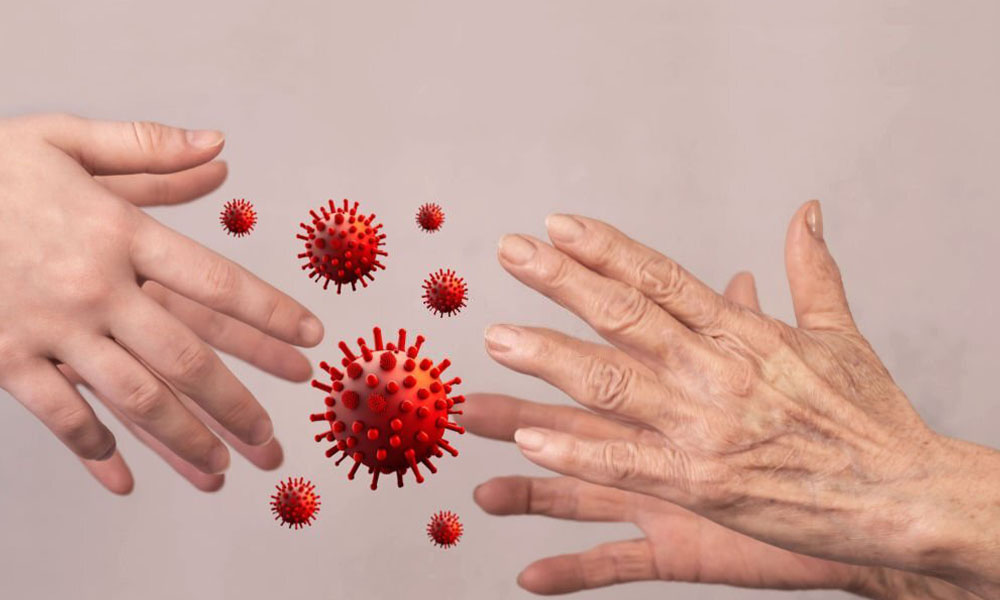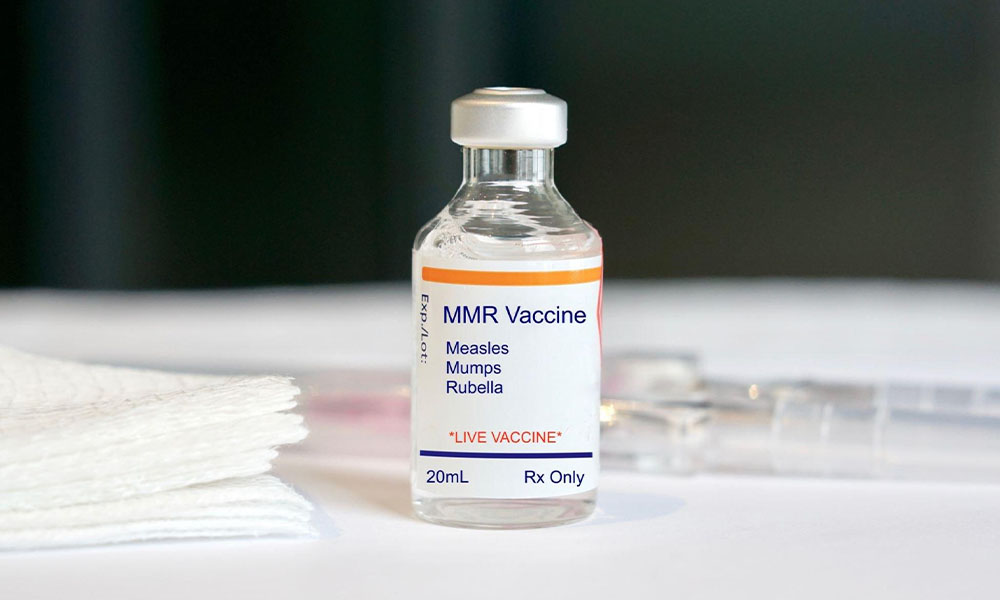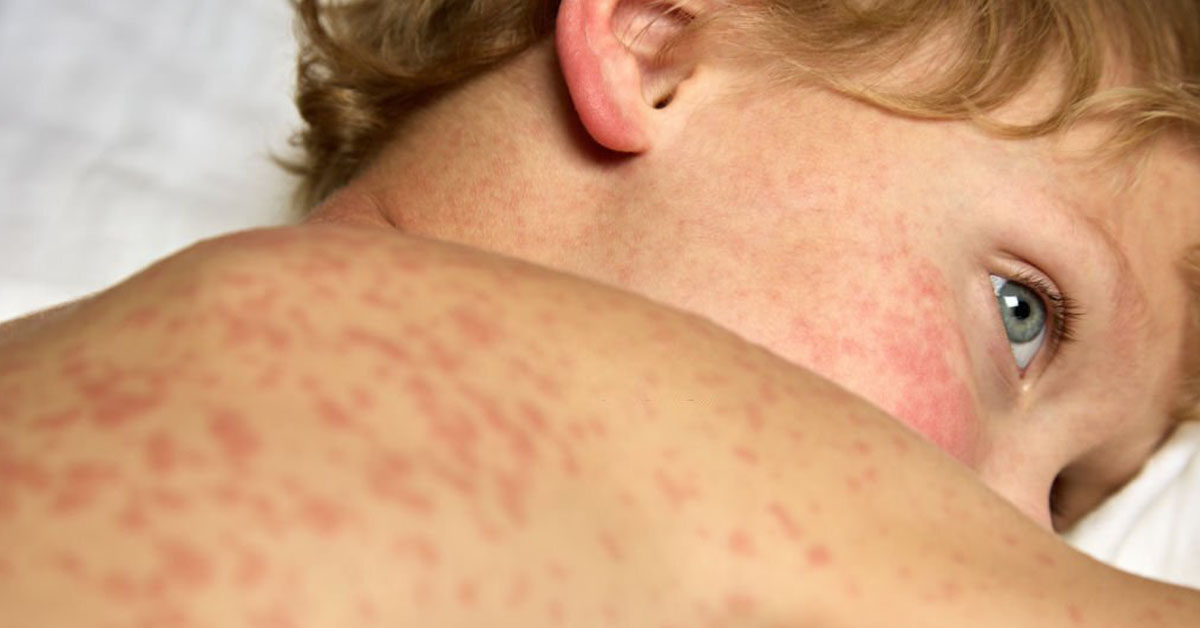Rubella is a contagious viral infection that affects many individuals worldwide. The virus is also known by the name “German measles” due to its similarity to the common measles virus. Rubella is highly contagious and spreads rapidly through the air when an infected person coughs or sneezes. In this article, I’ll explore the rubella virus, its symptoms, treatment, and prevention measures.
Table of Contents
ToggleIntroduction to the Rubella Virus
Rubella is a viral infection caused by the rubella virus. The virus spreads through respiratory droplets and can also be transmitted through contact with an infected person’s blood or bodily fluids.
Rubella is a mild disease, but it can have severe consequences for pregnant women and their unborn babies. The virus can cause miscarriage, stillbirth, and a range of birth defects known as congenital rubella syndrome.
History and spread of the Rubella Virus

The rubella virus first appeared in the United States in the mid-1960s. The virus rapidly spread across the country and caused several outbreaks. In the following years, the virus spread globally, affecting millions of people worldwide.
The spread of the virus was controlled with the development of a vaccine in the late 1960s. Since then, the number of rubella cases has significantly decreased, with many countries eliminating the disease entirely.
Symptoms and complications of Rubella
Rubella infection often causes a rash, fever, and swollen lymph nodes. The rash begins on the face and spreads to the rest of the body. The symptoms of rubella usually last for two to three days.
While rubella is a mild infection, it can cause severe complications in some cases. Pregnant women who contract the virus are at risk of miscarriage, stillbirth, premature delivery, and congenital rubella syndrome.
Diagnosis and testing for Rubella Virus
Doctors can diagnose rubella through a blood test to check for the presence of antibodies. A viral culture test can also detect the presence of the rubella virus in the blood.
Treatment options for Rubella
There is no specific treatment for rubella. Doctors usually recommend rest, fluids, and over-the-counter medications to relieve symptoms. Pregnant women who contract the virus may require specialized care to ensure the safety of the fetus.
Prevention and vaccination against Rubella Virus

The most effective way to prevent rubella is through vaccination. The rubella vaccine is given in combination with the measles and mumps vaccines and is usually administered to children in two doses.
Vaccines are essential in controlling the spread of rubella and eradicating the disease. Governments and health organizations worldwide have implemented vaccination programs to ensure the safety of their populations.
The impact of Rubella on vulnerable populations
Rubella can have a severe impact on vulnerable populations, such as pregnant women, infants, and individuals with compromised immune systems. In these populations, the virus can cause severe complications and even death.
Healthcare providers and governments must take special care to protect these populations through vaccination programs and specialized care.
Rubella in pregnancy – risks and precautions
Rubella infection during pregnancy can have severe consequences for the fetus. The virus can cause congenital rubella syndrome, a range of birth defects that affect the eyes, ears, and heart.
Pregnant women must take precautions to avoid contact with the virus, including vaccination before pregnancy and avoiding contact with infected individuals.
Rubella outbreaks and global efforts for eradication
Despite significant progress in the fight against rubella, outbreaks still occur worldwide. In recent years, several countries have reported outbreaks, challenging the progress made in eradicating the disease.
Governments and healthcare organizations worldwide must continue their efforts to vaccinate populations and provide specialized care to vulnerable individuals.
Frequently Asked Questions
What is Rubella?
Rubella, also known as German measles, is a contagious viral infection caused by the rubella virus. It primarily affects children and young adults but can affect people of all ages.
What are the common symptoms of Rubella?
Common symptoms of rubella include mild fever, a rash that starts on the face and spreads to the body, runny or stuffy nose, red eyes, swollen lymph nodes, sore throat, and joint pain.
How is Rubella transmitted?
Rubella is highly contagious and spreads through respiratory droplets when an infected person coughs or sneezes. It can also spread through direct contact with an infected person’s respiratory secretions or contaminated surfaces.
What is the incubation period for Rubella?
The incubation period for rubella is typically 12 to 23 days after exposure to the virus.
Is Rubella a serious illness?
Rubella is usually a mild illness, especially in children. However, it can be more severe in pregnant women, potentially leading to congenital rubella syndrome (CRS) in their unborn babies, causing birth defects like deafness, eye abnormalities, and heart problems.
How is Rubella treated?
There is no specific antiviral treatment for rubella. Treatment mainly focuses on relieving symptoms, such as fever and discomfort, with rest, fluids, and over-the-counter pain relievers. Infected individuals should also avoid contact with pregnant women to prevent transmission.
Can Rubella be prevented?
Yes, rubella can be prevented through vaccination. The measles, mumps, and rubella (MMR) vaccine is highly effective in preventing rubella. It is usually administered in two doses, with the first dose given around 12-15 months of age and the second dose at 4-6 years old. Vaccination not only protects the individual but also helps to create herd immunity, reducing the overall spread of the virus.
Who should get the Rubella vaccine?
The MMR vaccine is recommended for all children and adults who have not been vaccinated or who have not had rubella. It is also especially important for women of childbearing age to ensure they are immune to rubella before becoming pregnant to avoid the risk of congenital rubella syndrome.
Is Rubella Virus still a concern today?
Rubella has been largely eliminated in many countries, thanks to widespread vaccination efforts. However, it is still a concern in areas with low vaccination rates. To maintain protection, it is crucial for communities to continue vaccination programs and maintain high vaccine coverage.
What should I do if I suspect I or someone I know has Rubella?
If you suspect you or someone you know has rubella, consult a healthcare provider for a proper diagnosis. It’s important to isolate the infected individual to prevent further transmission, especially to pregnant women. Vaccination is key to preventing rubella, so discuss vaccination options with a healthcare professional if needed.
Conclusion and future prospects
Rubella is a highly contagious viral infection that can cause severe complications, especially in vulnerable populations. Vaccination is the most effective way to prevent the spread of the virus and eradicate the disease.
Healthcare providers and governments worldwide must continue their efforts to control the spread of rubella and protect vulnerable populations. With continued progress and cooperation, we can eliminate rubella and ensure the safety of our communities.


